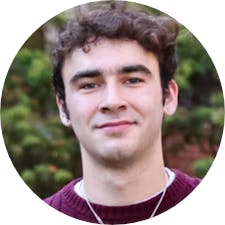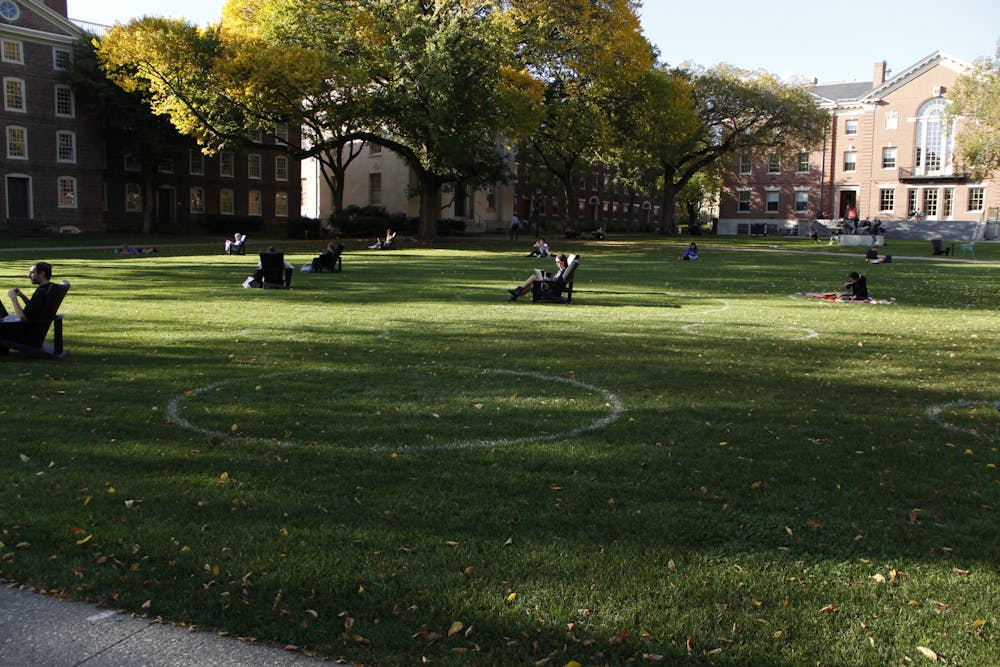The Pembroke Center invited scholars for a virtual symposium on Friday entitled “Queer(ing) Pandemics/Queer-as-Pandemic.”
Four professors — whose fields of study ranged from biology to media and culture studies — were asked to consider “the ways in which pandemics … have been endured, engaged and confronted by queer and trans communities,” according to event moderator Lynne Joyrich, professor of modern culture and media at the University.
A ‘double-edged sword’
Joseph Osmundson, clinical assistant professor of biology at New York University, opened the symposium by defining the term “pre-science,” which refers to the “social and political choices” that influence “what scientists study and how (they) study it.”
“Much of queer and trans life is pre-science, mostly because science doesn't generally study queer and trans people and when it does, science often does more harm than good,” he explained.
According to Osmundson, science can often misrepresent queer identities. He cited a movement in the 1990s in which “researchers were attempting to show genetic underpinnings of male sexuality in order to argue that sexuality was immutable and therefore (that) queer people deserve greater protections under the law.”
He criticized this research as dangerous, calling it a “double-edged sword, which could just as easily lead to the genetic treatment of queerness.”
“We must train scientists to be aware of the social, political and material world in which they work,” Osmundson said. “This will require a revolution.”
‘We need and long for emotional intimacy’
The second presentation was given by Marlon M. Bailey, professor of African and African American studies and women, gender and sexuality studies at Washington University in St. Louis. Bailey shared a personal essay with the virtual audience that explored themes of loneliness and loss during the COVID-19 pandemic for LGBTQ+ people and people of color.
Bailey recalled an experience in which he asked a potential sexual partner to follow COVID-19 prevention protocol during sex. “When I asked the guy if he would be willing to wear a mask, he said ‘Hell no. That's weird,’” Bailey recounted.
Bailey also discussed the impact of COVID-19 more broadly, adding that LGBTQ+ people of color were more likely to “experience the health and economic impacts of COVID-19 than both white LGBTQ+ people and non-LGBTQ+ white people.”
He also shared frustrations with his sexual life and loneliness during the pandemic, stemming from self-isolation and a fear of possible COVID-19 exposure.
“What I have learned from myself and from the research that I have conducted with Black men … is that we need and long for emotional intimacy, but we often lack the willingness, courage, tools and often the conditions to forge these kinds of relationships,” Bailey said.
‘Works to repress sexuality’
In her presentation entitled “Unbecoming,” Eva Hayward, assistant professor of media and culture studies at Utrecht University, discussed the intersection between transmisogyny — misogyny specifically against trans women — and pandemics.
She observed that queer and trans identities have historically been associated with HIV/AIDS and asked the audience to “rethink (these) easy associations.”
This discourse around the HIV/AIDS pandemic “works to repress sexuality” rather than serving as a reminder that HIV disproportionately affects trans women, according to Hayward. Acknowledging this connection was “profound” for Hayward as she was “coming into” her identity in the 1990s.
‘Parts of themselves that were previously inaccessible’
The fourth and final presentation of the symposium was given by Sarah Williams, visiting assistant professor of anthropology and gender studies at Brown. Williams’s presentation was titled “As Long as I'm not Eating my Dead Husband's Ashes, I’m Good: Mental Health, Social Supports and Queer Resiliency during the COVID-19 Pandemic.”
Williams shared stories from several queer individuals that highlighted how the COVID-19 pandemic impacted their mental health. One story she shared was that of an agender individual who was “forced to isolate at home with immediate family who was intensely religious and homophobic.”
But the pandemic also offered time and space for some LGBTQ+ individuals to explore their sexuality, according to Williams. “The social isolation and shift to the online social community … (allowed people) to explore the parts of themselves that were previously inaccessible.”

Ryan Doherty is the managing editor of digital content and vice president of The Herald's 135th editorial board. He is a junior from Carmel, NY who is concentrating in chemistry and economics. He previously served as a university news and science & research editor, covering faculty and higher education.





